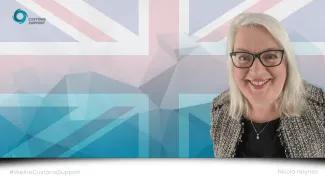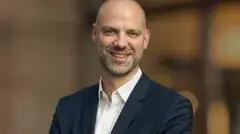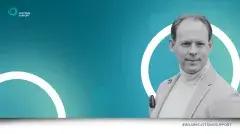Who are you?
I'm Nicola Haynes, a senior customs consultant. I've been working in the customs field for nearly 40 years and have been in all sorts of roles. I've worked for HMRC, out in the industry and I've worked in consulting, so I've experienced customs activity from all sides, really.
What does a senior customs consultant do?
My role at Customs Support is to assist businesses with the technical, legal, and practical sides of customs. Whether they need my help with an audit by HMRC, are looking to do something a bit more advanced such as apply for a special procedure approval, or just need help tidying up their processes, I’m here to guide them through that process and help them make sure that everything is running ok.
I am also a resource for businesses that are trying to deal with some of the more technical things, like duty reclaims and licences. I can work alongside our brokers on things, or I can be covering short-term absences in a client’s office.
What does your typical working day look like?
I don’t really have a typical working day as it’s always something different.
For example, I recently worked on a client’s project for several days. This project required me to look over their processes, liaise with colleagues on the continent, and then create a report and action plan for the client to implement.
Other projects are more straightforward, and at other times I could be working internally on communications and technical updates, so away from the customer entirely.
What do you like the most about your role?
I love the variety, I love customs, and I love that this keeps me interested in what I do. There’s always a new scenario that a customer can give you, and I find it fascinating that despite how long I have been in this industry I am still learning new things about customs as the landscape continues to change post Brexit. There’s always more to learn.
Another thing I love is the problem solving. Customs consultants often get called in when there is a problem, such as navigating the complexities of Brexit, and I love helping businesses get things running smoothly.
What excites you most about joining this new network of customs agents?
The growth of the company, and being closer to what I call the “real action”. I've been in consultancy roles where you are a little bit remote from “the coal face”, so to speak, and the physical brokerage aspect of things. I like that I can work with the brokerage teams to see where my services fit into that, and that we can collaborate across the EU so we can provide information on both sides of the water.
You've worked for customs authorities, in the customs industry, and in consulting. How do they differ from one another and how do they feed into one another?
When you are working for customs authorities, you are telling businesses what to do. You are running audits, looking for the gaps, and giving advice. I audited several large businesses, using complicated procedures, so it was more of an enforcement role to make sure chosen processes were being followed correctly.
In industry customs, there is a commercial element to it, as well as the physical declarations. For this, you need to make sure that you are customs compliant, but you also need to make sure you are doing things in a way that benefits the business.
Consulting brings both of those elements together. Not only do I know how to help a business run their processes more efficiently and ways that they can benefit from small changes, but I also know how customs authorities will audit them so that I can help to ensure their compliance.
Customs can be mentally taxing. What do you do when you're not at work to relax and make sure that you're having a break from all the legislation?
I do a lot of reading on the weekends, and joy a good crime novel. I love cooking. I love experimenting with new recipes. Lockdown helped with that, and I’ve really expanded my spice cupboard in recent years as I’ve learnt to make more advanced curries – which is my favourite thing to cook.
My husband and I like also like to go out for a walk around the local area and explored a lot of the local areas and we've got favourite places we like to go to here as well as going out a bit further afield.
What is the most important thing a client should look for when looking for a customs broker?
They want to look for someone with experience, who will understand what their problems are and be able to articulate how to do things in layman's terms. Often the official guidance is very impenetrable because of the jargon, so I feel like there’s a translation element to what I do.
Another thing is being realistic about how long things will take and then delivering within time scales. Some things do take quite a while to do; it’s unavoidable.
You now work for the Europe-wide network. If you were to visit an office location of Customs Support, which city would you want to go to first and why?
I love Italy, but it would be The Netherlands first. It’s somewhere I haven’t been, so I'd be quite excited to go to the Netherlands.
And if you were going to go learn from a native chef in a Customs Support country, where would you go?
Spain. I’d love to learn how to make a good Paella.














